Last March, Wake Upper Elli Weisbaum became a Dharma teacher in our tradition. She is one of the first lay Wake Uppers to receive the lamp. Elli helped found the Wake Up movement in North America and has been facilitating Wake Up Toronto since its inception in 2012. She is a founding member of the North American Wake Up Care Taking Council. Recently she helped create a 14 Mindfulness Trainings study group for young Order of Interbeing aspirants in North America.
In the second part of this interview, we look together with Elli at the birth and the future of the Wake Up movement. You can find part 1 here.
Don’t let education get in the way of your education
Wake Up: How did you get involved in the creation of Wake Up?
Elli: In 2012 me and my partner Rob – who is now my husband – were invited to join the first North America Wake Up tour. A small group of monastics and experienced Wake Up lay practitioners from Europe, would travel together for four weeks to host Days of Mindfulness at different universities and help establish Wake Up in North America. During this tour the first Wake Up Sanghas were started in North America.
It was an epic crew. It was an unusual thing in our Sangha back then to do a tour with a small group of lay and monastic practitioners. The monastics were Sr. Tai Nghiem, Br. Phap Luu, Br. Phap Chieu, Br. Phap Sieu, Sr. Man Nghiem, Br. Phap Linh, Sr. Hien Nghiem and Sr. Trai Nghiem, the latter three still being quite young monastics at the time.
I had just started my masters a month earlier, and was already taking off for four weeks. My supervisor was very supportive and turned this tour into a course credit for me. He said: ‘We’re not letting education get in the way of your education.”
In the spring of next year we were invited to go on tour again with Thay. I went with the Sangha to the UK and helped organize an educators retreat. And the year after, we went with some monastics to India and Bhutan, to bring mindfulness into schools. My master’s thesis actually ended up being about these retreats, researching how people integrated them into their lives.
Wake Up: Can you tell us mare about your own Wake Up Sangha in Toronto?
Elli: We weren’t planning on starting Wake Up Toronto, when we received a letter from the Toronto all ages Sangha telling us – out of the blue – that they did not want us to start a Wake Up Sangha. They were concerned about safety and mental health issues and were worried about our well-being. But then they had some conversations with the monastics. They changed their minds completely and gave us total support. There was still some skepticism. Some people felt they had to keep a close eye on the young people. Now we have a very good relationship with the all ages Sangha.
One of the unique things about our Wake Up Sangha, is that every week the facilitator gives a Dharma talk, a talk about about the Dharma from their hearts. Br Phap Man once said: “You don’t have to be a Dharma teacher to give a Dharma talk.” One of my co-facilitators, Pablo, used to say that this is where we practice our ‘Dharma jokes’. Professional comedians rehearse their jokes for years in the backs of bars, before they go on the big stage. The Wake Up Sangha is an incubator for young practitioners. We can practice sharing the Dharma there.
Transforming ourselves to take action in the world
Wake Up: What role do you see for Wake Up in the world today? Do you have any encouraging words for our Wake Up Sangha builders?
Elli: We are part of a living lineage of 2500 years of teachings. Br. Phap Linh will sometimes say to my class: “We have been handed these polished gems from generations of humans who thought it was worthwhile to look into and turn towards the suffering of the world and ask what we can do to look inside and bring love, care and compassion into the world.” Our lineage is about engaged Buddhism. We transform and heal ourselves, so we can take action in the world. It is not an individualized stress reduction program. We are about taking action. Our teacher’s name means ‘One Action’.
Thay’s aspiration is to renew Buddhism, and not just once, but to keep innovating, always standing in the vanguard. The renewal happens in every moment. Thay started the Order of Interbeing, but it did not end there. Wake Up also represents that renewal, giving a voice to young people, making space for the next generation. This does not mean we don’t respect the tradition that we are part of, but we have the permission to keep renewing it.
Now, as I am becoming a more ‘middle aged’ or even ‘geriatric’ Wake Upper (laughs) and a Dharma teacher, that is also how I see my role. How can I support Wake Up, so that space can continue renewing.
Wake Up: Wake Up has been around now for over 15 years. The first generation of Wake Uppers is transitioning out. How do you see their role?
Elli: I’m about to go through that myself, so I don’t necessarily have a good answer yet. I don’t know if ‘transitioning out’ is the right word. I hope that the original Wake Uppers flow into the all ages Sanghas and bring that Wake Up energy with them. That is part of the renewal. We also want to leave space for the next generation of young people.
This is something we are figuring out as a Sangha. What if a Sangha facilitator ages out, and then their Wake Up Sangha falls apart? Maybe they can still hold space then. What does it mean to be a Wake Up advisor?
At the same time, I wouldn’t want the relationships that people have been cultivating in Wake Up to dissipate as they age out. There’s something great about connecting with your generation. I think there is a need for that space. Let’s not just age out and delete 15 years of Sangha building.
Personally, I am not concerned about this. For me, there is no separation. Thay was a great fan of affinity groups. There are good reasons to rest back into your community (for example Wake Up, queer, People of Color…), and then flow back into the Mahasangha. So let’s have all these groups, and let’s all connect together.
Be the peace you wish to see in the world
Pictures from Wake Up Tour East coast 2011. Second picture shows flash mob meditation Union Square, New York City
Wake Up: What message do you have for young people in the world today?
Elli: There are a lot of crises happening, but there is also a lot of joy and love. Let us touch both. We are embracing the suffering of the world, and we do that by cultivating our care and love. First we nourish the joy, then we take the action, not to ignore it, but to get the strength we need today.
Sometimes people ask me what gives me hope at this moment. What gives me hope is that through my work, through my Sangha and my practice, I am cultivating and being the peace and love I hope to see in the world. And I can do that through Sangha building. None of us do this alone. You are not alone, you belong. We want every one of us.
Every person reading this article, we need you, the planet needs you. I have friends who are in despair about climate, about politics. That does affect me, I do feel sadness and despair. But I also feel hope, love and rest in my Sangha spaces, and then I can step back out into the trauma.
Renew the Dharma, let’s make it our own. That is my invitation. There can be real barriers to us feeling belonging. There can be unskillfulness in the Sangha. There have been bumps in the road. Don’t expect the Sangha to be a space where we will never be triggered. But we know how to repair. My question as a Dharma teacher is: How can I support you? I want to be an ally and a listener, to never stop growing and listening.
Wake Up: Thank you very much for offering us your time and your insights! Let’s continue growing together!

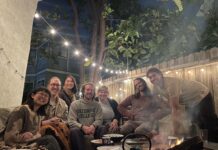








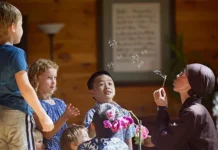






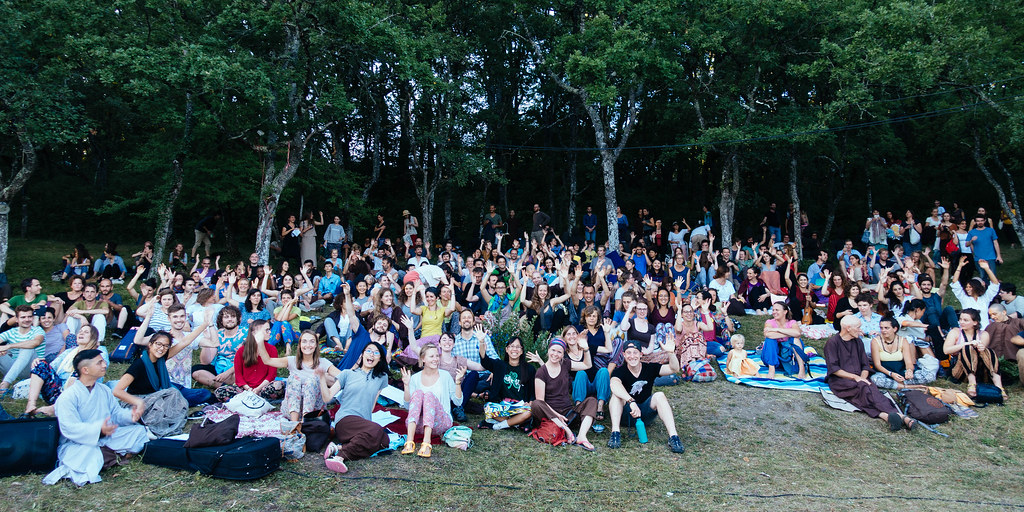
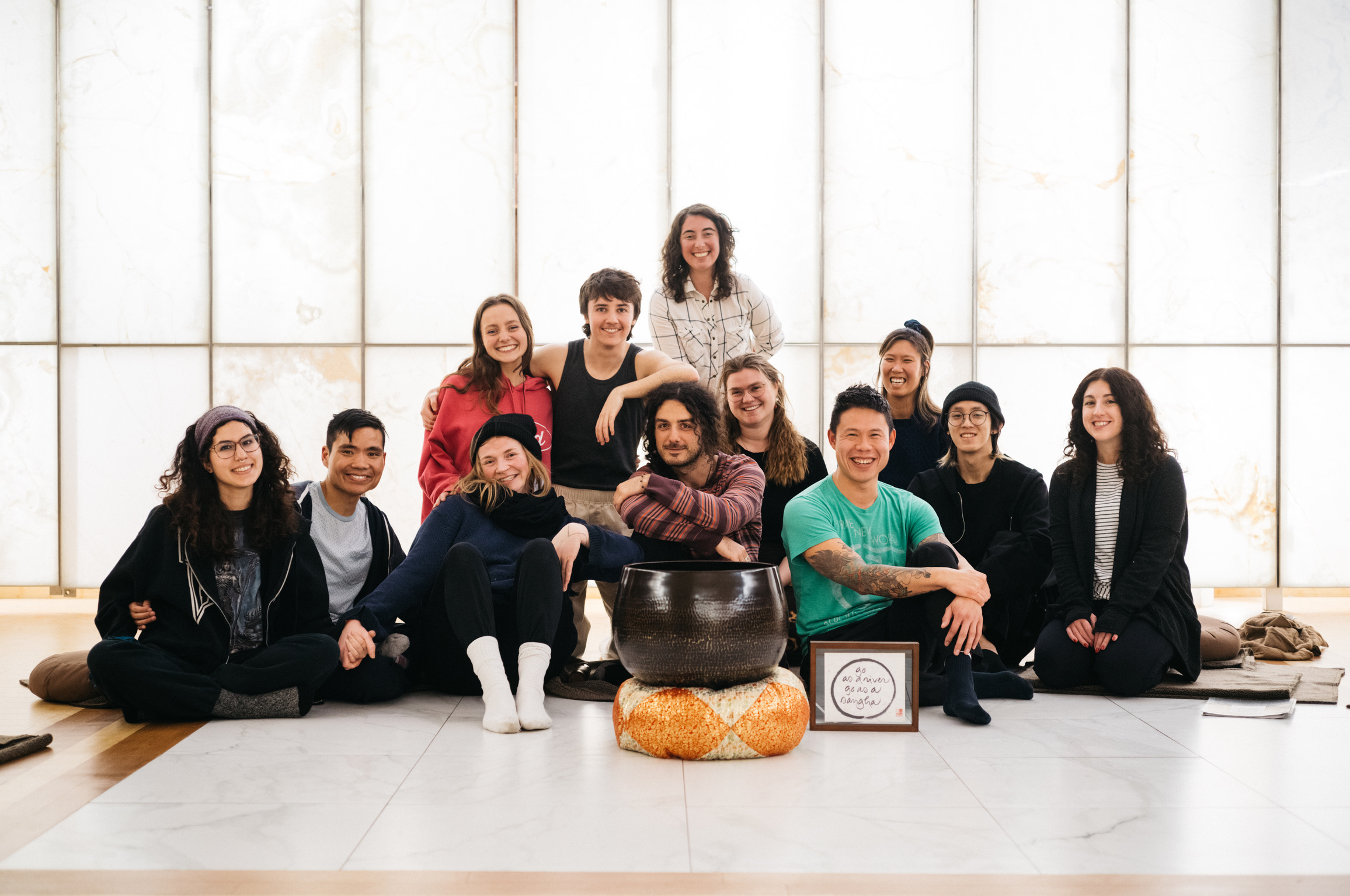
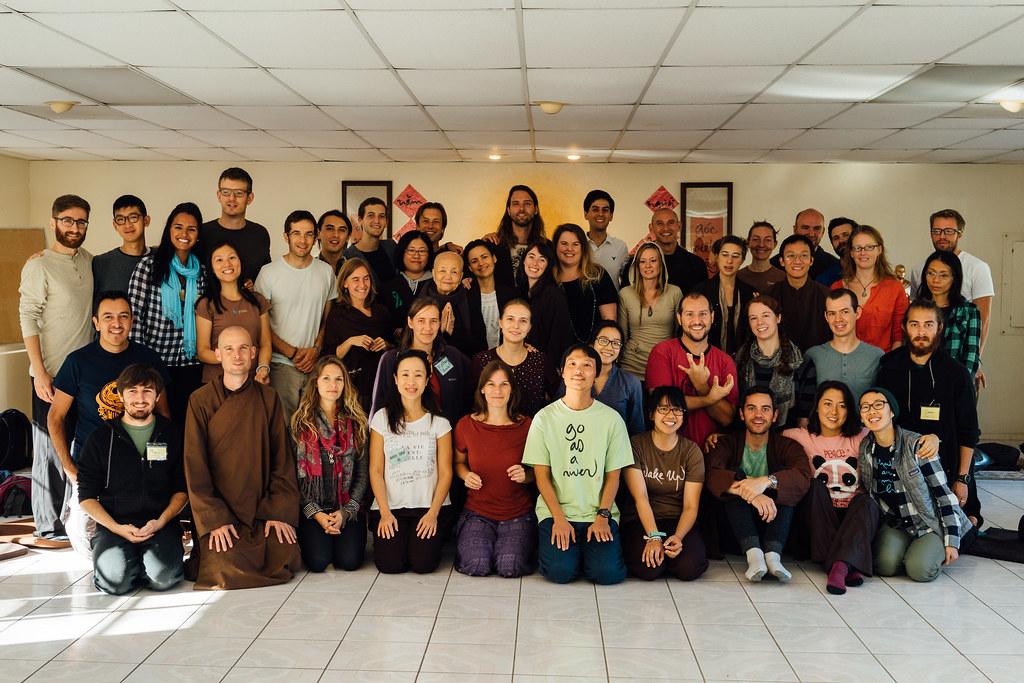
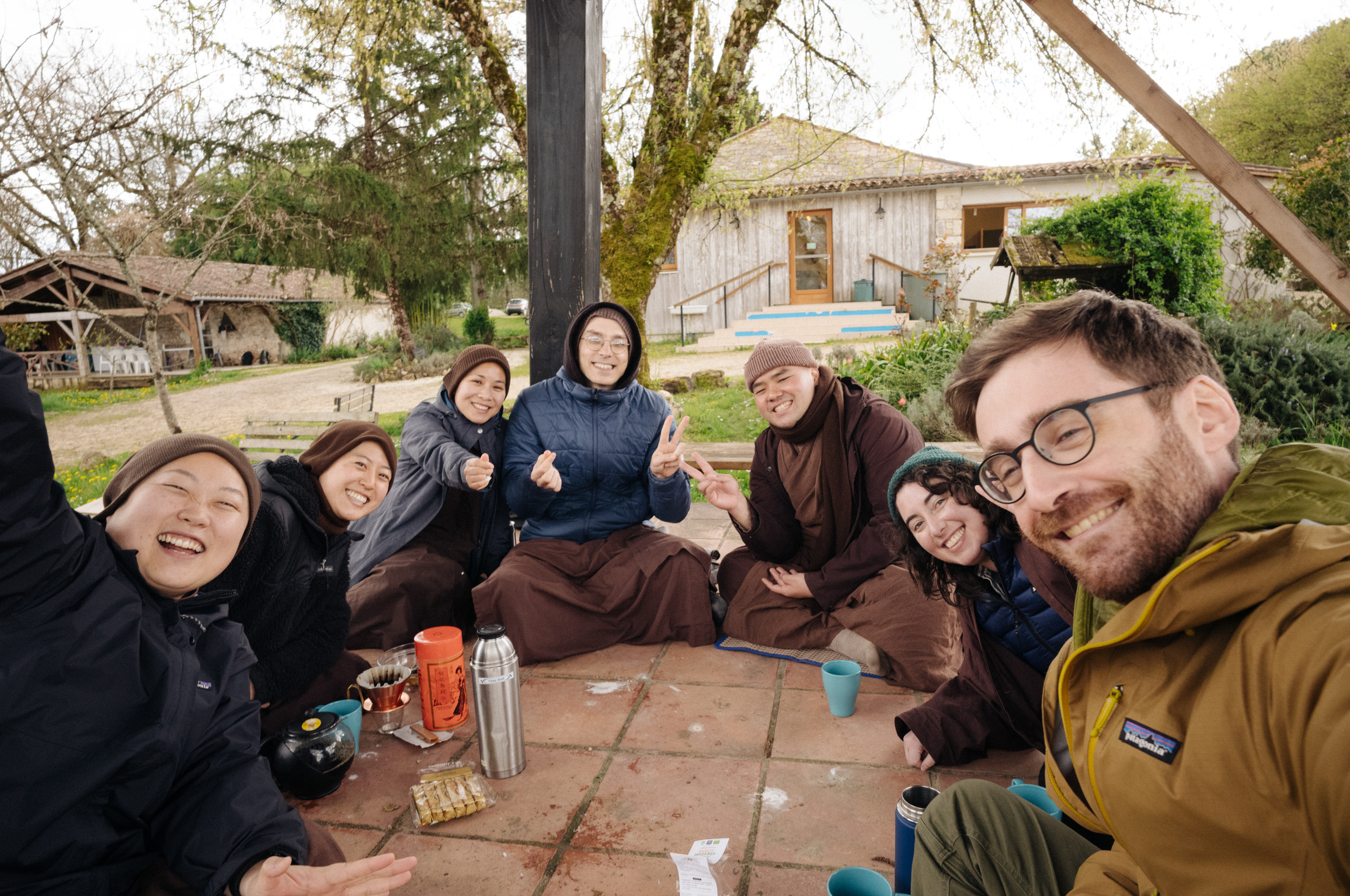
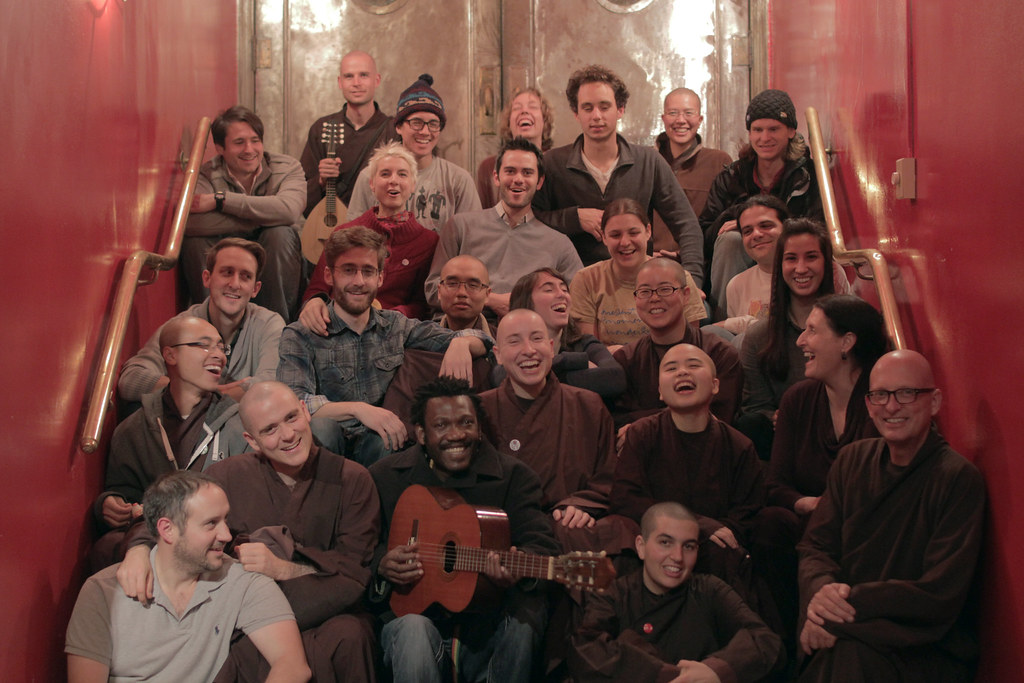
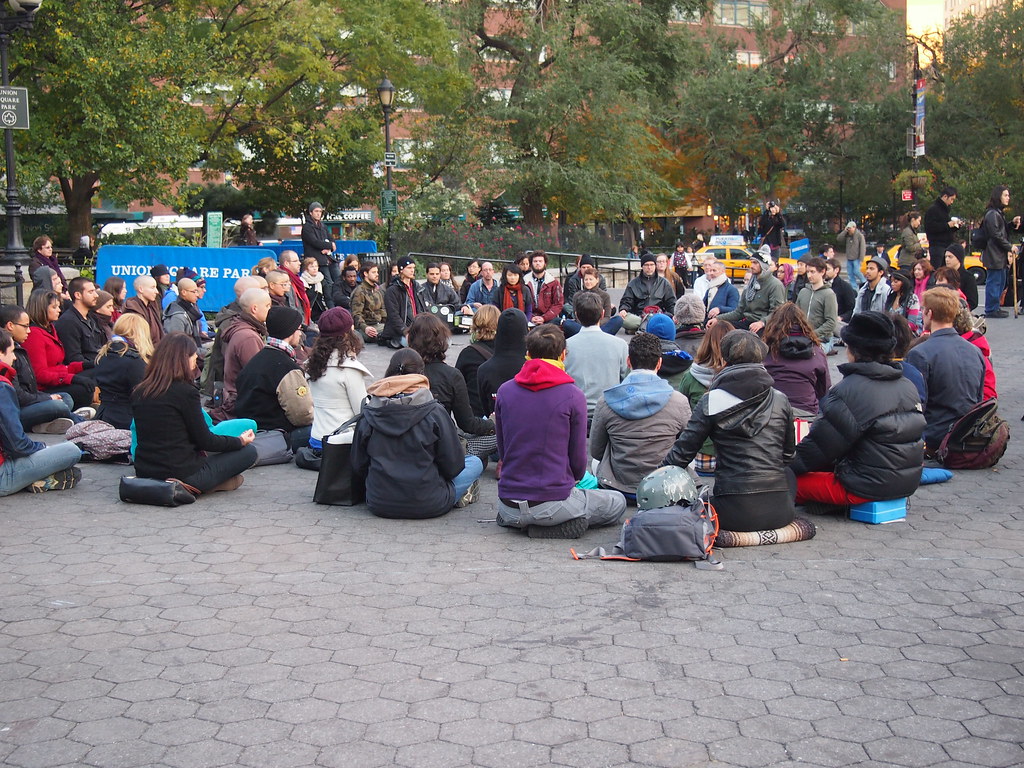
What a timely and open interview ❤️. Thank you Jazz for holding space and Elli for sharing.
I never got to be a Wake Upper, but through your service of creating the WUOI ‘curriculum ‘ I now get the chance to be part of a Sangha with like hearted peers.